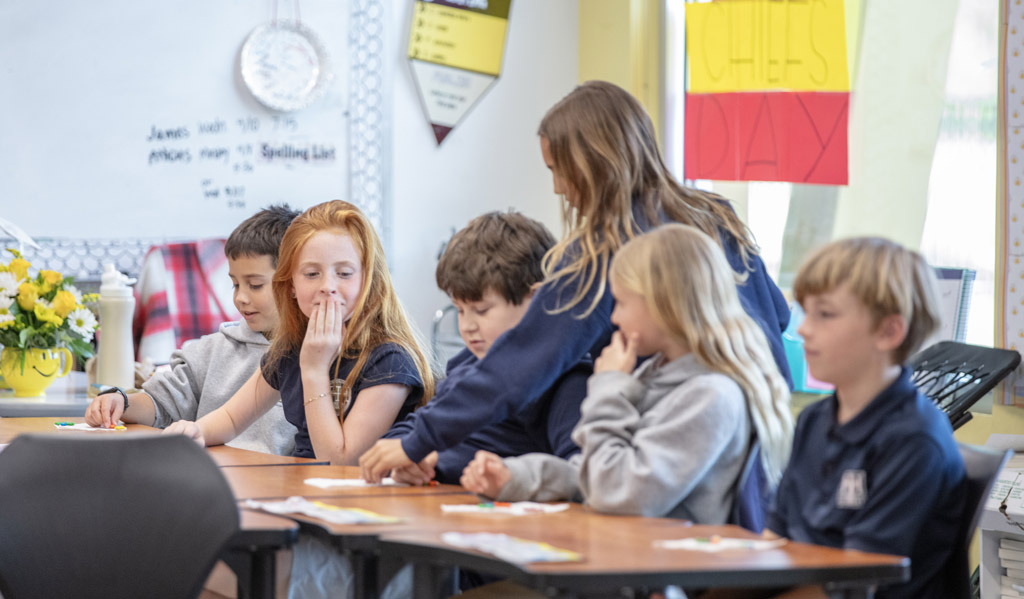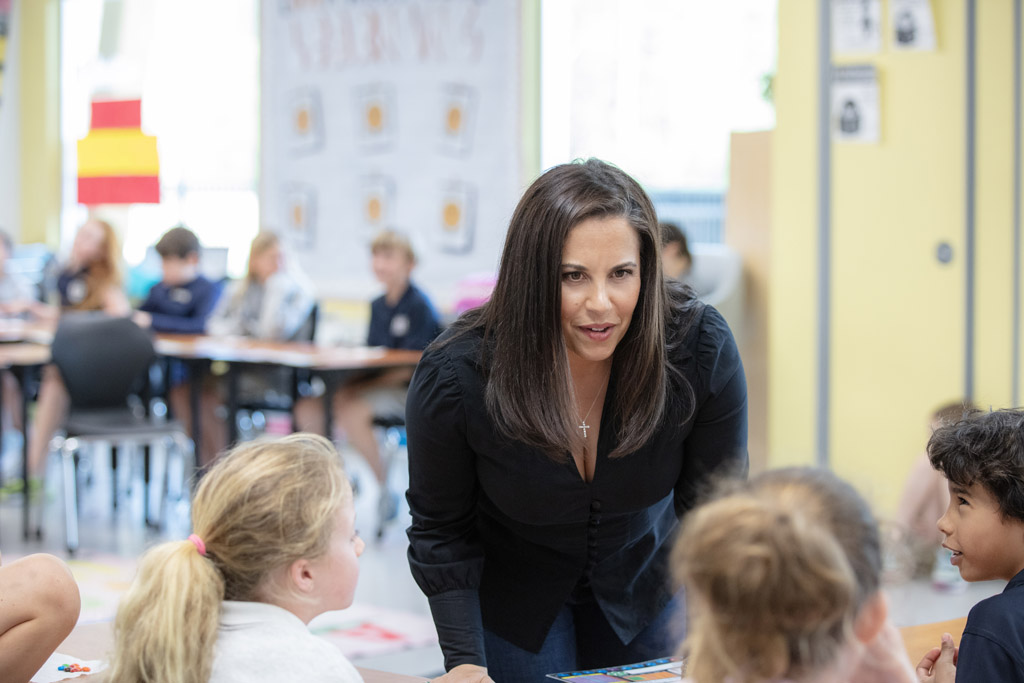This month you might have heard a sigh of relief from your fellow Americans, as the start of May marks the end of tax season. And while most of us were able to somehow turn that box of receipts and that pile of paperwork into a number, did any of us really understand what we were doing? Do any of us even really grasp how taxes work? (That was rhetorical. For most of us, the answer is a resounding “no.”)
“One of the biggest things that surprised me when I joined the Treasurer’s Office was how many people would come in who didn’t understand their tax bill or where their tax dollars were going. I thought it was simple – it’s basic math,” said Beaufort County Treasurer Maria Walls, CPA. “I realized there’s a huge gap.”

Beaufort County Treasurer Maria Walls, CPA
The idea for filling that gap came to her one night over dessert with her four children.
While adults can (theoretically) be taught how taxes work, that lesson will most likely come too late for most of us. But what if you can teach children the concept? Then you have an educated tax base. But how can you get kids to care about something so nebulous, something so unbearably grown-up as taxes?
“We were having dessert, and they’d earned that reward, but I told them, ‘Now I’m taking some of that away from you.’ Of course, their reaction was negative,” Walls said. Surprisingly, though, once Walls explained the kinds of things their lost rewards were paying for – new roads, schools, infrastructure – it at least took the sting out of it.
Even if children don’t understand the concept of a dollar, they understand the concept of candy. And they certainly understand what a sacrifice it is to give up some of that candy. That level of understanding sparked an idea in Walls, and a new fun way to teach taxes was born.

The tax collector gathers M&M’s for the new road that the constituents voted for.
“It is seriously the best part of my job. It’s so much fun,” Walls said.
The first iteration of her tax game was played eight years ago during a visit to Pritchardville Elementary. The rules are straightforward – kids are given a fun size bag of about 14 M&Ms, then set aside half to cover their living expenses. As the rest of the M&Ms are “taxed” from them, one proposal at a time, the kids get a chance to learn where their tax dollars (or, in this case, tax candies) go.
“When I tell them each M&M is worth $100, they go nuts. They think they’re rich,” said Walls. “But then as their M&Ms start getting ‘taxed,’ they definitely lose some enthusiasm.”
Thankfully, the other students who are playing council members get to explain where that candy is going. One collects funds to widen a busy intersection, helping small businesses on Main Street. Another collects to repair an air conditioning unit at an administrative building. And piece by piece, the students see their candy piles dwindle while their town improves.

Maria Walls answers questions about the tax process as the children at Hilton Head Christian Academy play the game.
“When we discuss it, I’ll ask, ‘Who agreed with this decision? Who disagreed with this decision?’” Walls said. “Then I tell them, ‘The conversations you’re having, the feelings you’re having, these are things the adults in your life are talking about when they get their tax bill.”
Through the game, the students gain the explicit lesson that their tax money doesn’t simply disappear – it’s used to improve our community in ways they didn’t even think of. They also gain an implicit lesson, one that comes from hearing the proposals from town council and realizing the importance of civic engagement.
“Their homework when they’re done is to go home and ask their parents the last time they went to a town or county council meeting,” Walls said, citing a statistic that 80% of adults have never attended a public meeting. “I point out that they can’t be upset if they haven’t talked to their elected officials about why they’re upset. You really see the wheels turning, and honestly the biggest goal for me is that they leave caring.”
When Walls created this game, she did so with aims to give kids a better appreciation of the tax process and how it works. What she ended up creating was something that gives kids the tools to be better citizens – more knowledgeable, and ultimately more involved.
“These kids are not sitting still, they’re excited to interact. I try to make sure that I answer every hand that gets raised because they never all agree, yet they all share their opinion and thoughts openly,” Walls said. “I get to do a lot of things in my job, and this is my favorite, helping the taxpayers of tomorrow become citizens who engage with their government.”
Want to play along? Just follow the official rules of the tax game below:
Materials needed:
Fun pack of M&Ms for each student attending
Napkins for each student attending
3 cups to collect the M&Ms
How to Play:
Ask for five volunteers. They are the Tax Collector, Tax Agent, and three Council Members.
Tell them to look over their cards.
While they are looking over their cards, explain to the rest of the students what the M&Ms are for. Each M&M is worth $100.
The M&Ms are their money. How many do they have in their bag?
This is what they have earned; they need half to pay for living expenses (rent, car, gas, groceries, etc.). They set those aside.
The Tax Collector and Tax Agent read their cards and are each given a cup.
Each Council Member gives their campaign speech.
The first Council Member reads their vote on Council.
Tax Collector and Tax Agent then go around collecting M&Ms.
Discuss their responses.
The second Council Member reads their vote on Council.
Tax Collector and Tax Agent then go around collecting M&Ms.
Discuss their responses.
The third Council Member reads their vote on Council.
Tax Collector and Tax Agent then go around collecting M&Ms.
Discuss their responses and wrap up.


